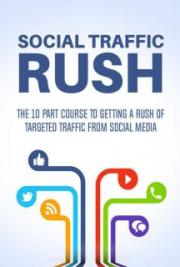CHAPTER XXVII--THE MANAGEMENT
In this final chapter it were well to look at the Social Abyss in its
widest aspect, and to put certain questions to Civilisation, by the
answers to which Civilisation must stand or fall. For instance, has
Civilisation bettered the lot of man? "Man," I use in its democratic
sense, meaning the average man. So the question re-shapes itself: _Has
Civilisation bettered the lot of the average man_?
Let us see. In Alaska, along the banks of the Yukon River, near its
mouth, live the Innuit folk. They are a very primitive people,
manifesting but mere glimmering adumbrations of that tremendous artifice,
Civilisation. Their capital amounts possibly to 2
pounds per head. They
hunt and fish for their food with bone-headed spews and arrows. They
never suffer from lack of shelter. Their clothes, largely made from the
skins of animals, are warm. They always have fuel for their fires,
likewise timber for their houses, which they build partly underground,
and in which they lie snugly during the periods of intense cold. In the
summer they live in tents, open to every breeze and cool. They are
healthy, and strong, and happy. Their one problem is food. They have
their times of plenty and times of famine. In good times they feast; in
bad times they die of starvation. But starvation, as a chronic
condition, present with a large number of them all the time, is a thing
unknown. Further, they have no debts.
In the United Kingdom, on the rim of the Western Ocean, live the English
folk. They are a consummately civilised people. Their capital amounts
to at least 300 pounds per head. They gain their food, not by hunting
and fishing, but by toil at colossal artifices. For the most part, they
suffer from lack of shelter. The greater number of them are vilely
housed, do not have enough fuel to keep them warm, and are insufficiently
clothed. A constant number never have any houses at all, and sleep
shelterless under the stars. Many are to be found, winter and summer,
shivering on the streets in their rags. They have good times and bad. In
good times most of them manage to get enough to eat, in bad times they
die of starvation. They are dying now, they were dying yesterday and
last year, they will die to-morrow and next year, of starvation; for
they, unlike the Innuit, suffer from a chronic condition of starvation.
There are 40,000,000 of the English folk, and 939 out of every 1000 of
them die in poverty, while a constant army of 8,000,000
struggles on the
ragged edge of starvation. Further, each babe that is born, is born in
debt to the sum of 22 pounds. This is because of an artifice called the
National Debt.
In a fair comparison of the average Innuit and the average Englishman, it
will be seen that life is less rigorous for the Innuit; that while the
Innuit suffers only during bad times from starvation, the Englishman
suffers during good times as well; that no Innuit lacks fuel, clothing,
or housing, while the Englishman is in perpetual lack of these three
essentials. In this connection it is well to instance the judgment of a
man such as Huxley. From the knowledge gained as a medical officer in
the East End of London, and as a scientist pursuing investigations among
the most elemental savages, he concludes, "Were the alternative presented
to me, I would deliberately prefer the life of the savage to that of
those people of Christian London."
The creature comforts man enjoys are the products of man's labour. Since
Civilisation has failed to give the average Englishman food and shelter
equal to that enjoyed by the Innuit, the question arises: _Has
Civilisation increased the producing power of the average man_? If it
has not increased man's producing power, then Civilisation cannot stand.
But, it will be instantly admitted, Civilisation has increased man's
producing power. Five men can produce bread for a thousand. One man can
produce cotton cloth for 250 people, woollens for 300, and boots and
shoes for 1000. Yet it has been shown throughout the pages of this book
that English folk by the millions do not receive enough food, clothes,
and boots. Then arises the third and inexorable question: _If
Civilisation has increased the producing power of the average man, why
has it not bettered the lot of the average man_?
There can be one answer only--MISMANAGEMENT.
Civilisation has made
possible all manner of creature comforts and heart's delights. In these
the average Englishman does not participate. If he shall be forever
unable to participate, then Civilisation falls. There is no reason for
the continued existence of an artifice so avowed a failure. But it is
impossible that men should have reared this tremendous artifice in vain.
It stuns the intellect. To acknowledge so crushing a defeat is to give
the death-blow to striving and progress.
One other alternative, and one other only, presents itself. _Civilisation
must be compelled to better the lot of the average men_.
This accepted,
it becomes at once a question of business management.
Things profitable
must be continued; things unprofitable must be eliminated. Either the
Empire is a profit to England, or it is a loss. If it is a loss, it must
be done away with. If it is a profit, it must be managed so that the
average man comes in for a share of the profit.
If the struggle for commercial supremacy is profitable, continue it. If
it is not, if it hurts the worker and makes his lot worse than the lot of
a savage, then fling foreign markets and industrial empire overboard. For
it is a patent fact that if 40,000,000 people, aided by Civilisation,
possess a greater individual producing power than the Innuit, then those
40,000,000 people should enjoy more creature comforts and heart's
delights than the Innuits enjoy.
If the 400,000 English gentlemen, "of no occupation,"
according to their
own statement in the Census of 1881, are unprofitable, do away with them.
Set them to work ploughing game preserves and planting potatoes. If they
are profitable, continue them by all means, but let it be seen to that
the average Englishman shares somewhat in the profits they produce by
working at no occupation.
In short, society must be reorganised, and a capable management put at
the head. That the present management is incapable, there can be no
discussion. It has drained the United Kingdom of its life-blood. It has
enfeebled the stay-at-home folk till they are unable longer to struggle
in the van of the competing nations. It has built up a West End and an
East End as large as the Kingdom is large, in which one end is riotous
and rotten, the other end sickly and underfed.
A vast empire is foundering on the hands of this incapable management.
And by empire is meant the political machinery which holds together the
English-speaking people of the world outside of the United States. Nor
is this charged in a pessimistic spirit. Blood empire is greater than
political empire, and the English of the New World and the Antipodes are
strong and vigorous as ever. But the political empire under which they
are nominally assembled is perishing. The political machine known as the
British Empire is running down. In the hands of its management it is
losing momentum every day.
It is inevitable that this management, which has grossly and criminally
mismanaged, shall be swept away. Not only has it been wasteful and
inefficient, but it has misappropriated the funds.
Every worn-out, pasty-
faced pauper, every blind man, every prison babe, every man, woman, and
child whose belly is gnawing with hunger pangs, is hungry because the
funds have been misappropriated by the management.
Nor can one member of this managing class plead not guilty before the
judgment bar of Man. "The living in their houses, and in their graves
the dead," are challenged by every babe that dies of innutrition, by
every girl that flees the sweater's den to the nightly promenade of
Piccadilly, by every worked-out toiler that plunges into the canal. The
food this managing class eats, the wine it drinks, the shows it makes,
and the fine clothes it wears, are challenged by eight million mouths
which have never had enough to fill them, and by twice eight million
bodies which have never been sufficiently clothed and housed.
There can be no mistake. Civilisation has increased man's producing
power an hundred-fold, and through mismanagement the men of Civilisation
live worse than the beasts, and have less to eat and wear and protect
them from the elements than the savage Innuit in a frigid climate who
lives to-day as he lived in the stone age ten thousand years ago.
CHALLENGE
I have a vague remembrance
Of a story that is told
In some ancient Spanish legend
Or chronicle of old.
It was when brave King Sanche
Was before Zamora slain,
And his great besieging army
Lay encamped upon the plain.
Don Diego de Ordenez
Sallied forth in front of all,
And shouted loud his challenge
To the warders on the wall.
All the people of Zamora,
Both the born and the unborn,
As traitors did he challenge
With taunting words of scorn.
The living in their houses,
And in their graves the dead,
And the waters in their rivers,
And their wine, and oil, and bread.
There is a greater army
That besets us round with strife,
A starving, numberless army
At all the gates of life.
The poverty-stricken millions
Who challenge our wine and bread,
And impeach us all as traitors,
Both the living and the dead.
And whenever I sit at the banquet,
Where the feast and song are high,
Amid the mirth and music
I can hear that fearful cry.
And hollow and haggard faces
Look into the lighted hall,
And wasted hands are extended
To catch the crumbs that fall
And within there is light and plenty,
And odours fill the air;
But without there is cold and darkness, And hunger and despair.
And there in the camp of famine,
In wind, and cold, and rain,
Christ, the great Lord of the Army,
Lies dead upon the plain.
LONGFELLOW
Footnotes:
{1} This in the Klondike.--J. L.
{2} "Runt" in America is the equivalent of the English
"crowl," the
dwarf of a litter.
{3} The San Francisco bricklayer receives twenty shillings per day, and
at present is on strike for twenty-four shillings.
***END OF THE PROJECT GUTENBERG EBOOK THE PEOPLE OF THE
ABYSS***
******* This file should be named 1688.txt or 1688.zip
*******
This and all associated files of various formats will be found in:
http://www.gutenberg.org/dirs/1/6/8/1688
Updated editions will replace the previous one--the old editions
will be renamed.
Creating the works from public domain print editions means that no
one owns a United States copyright in these works, so the Foundation
(and you!) can copy and distribute it in the United States without
permission and without paying copyright royalties.
Special rules,
set forth in the General Terms of Use part of this license, apply to
copying and distributing Project Gutenberg-tm electronic works to
protect the PROJECT GUTENBERG-tm concept and trademark.
Project
Gutenberg is a registered trademark, and may not be used if you
charge for the eBooks, unless you receive specific permission. If you
do not charge anything for copies of this eBook, complying with the
rules is very easy. You may use this eBook for nearly any purpose
such as creation of derivative works, reports, performances and
research. They may be modified and printed and given away--you may do
practically ANYTHING with public domain eBooks.
Redistribution is
subject to the trademark license, especially commercial redistribution.
*** START: FULL LICENSE ***
THE FULL PROJECT GUTENBERG LICENSE
PLEASE READ THIS BEFORE YOU DISTRIBUTE OR USE THIS WORK
To protect the Project Gutenberg-tm mission of promoting the free
distribution of electronic works, by using or distributing this work
(or any other work associated in any way with the phrase
"Project
Gutenberg"), you agree to comply with all the terms of the Full Project
Gutenberg-tm License (available with this file or online at
http://gutenberg.net/license).
Section 1. General Terms of Use and Redistributing Project Gutenberg-tm
electronic works
1.A. By reading or using any part of this Project Gutenberg-tm
electronic work, you indicate that you have read, understand, agree to
and accept all the terms of this license and intellectual property
(trademark/copyright) agreement. If you do not agree to abide by all
the terms of this agreement, you must cease using and return or destroy
all copies of Project Gutenberg-tm electronic works in your possession.
If you paid a fee for obtaining a copy of or access to a Project
Gutenberg-tm electronic work and you do not agree to be bound by the
terms of this agreement, you may obtain a refund from the person or
entity to whom you paid the fee as set forth in paragraph 1.E.8.
1.B. "Project Gutenberg" is a registered trademark. It may only be
used on or associated in any way with an electronic work by people who
agree to be bound by the terms of this agreement. There are a few
things that you can do with most Project Gutenberg-tm electronic works
even without complying with the full terms of this agreement. See
paragraph 1.C below. There are a lot of things you can do with Project
Gutenberg-tm electronic works if you follow the terms of this agreement
and help preserve free future access to Project Gutenberg-tm electronic
works. See paragraph 1.E below.
1.C. The Project Gutenberg Literary Archive Foundation ("the Foundation"
or PGLAF), owns a compilation copyright in the collection of Project
Gutenberg-tm electronic works. Nearly all the individual works in the
collection are in the public domain in the United States. If an
individual work is in the public domain in the United States and you are
located in the United States, we do not claim a right to prevent you from
copying, distributing, performing, displaying or creating derivative
works based on the work as long as all references to Project Gutenberg
are removed. Of course, we hope that you will support the Project
Gutenberg-tm mission of promoting free access to electronic works by
freely sharing Project Gutenberg-tm works in compliance with the terms of
this agreement for keeping the Project Gutenberg-tm name associated with
the work. You can easily comply with the terms of this agreement by
keeping this work in the same format with its attached full Project
Gutenberg-tm License when you share it without charge with others.
1.D. The copyright laws of the place where you are located also govern
what you can do with this work. Copyright laws in most countries are in
a constant state of change. If you are outside the United States, check
the laws of your country in addition to the terms of this agreement
before downloading, copying, displaying, performing, distributing or
creating derivative works based on this work or any other Project
Gutenberg-tm work. The Foundation makes no representations concerning
the copyright status of any work in any country outside the United
States.
1.E. Unless you have removed all references to Project Gutenberg:
1.E.1. The following sentence, with active links to, or other immediate
access to, the full Project Gutenberg-tm License must appear prominently
whenever any copy of a Project Gutenberg-tm work (any work on which the
phrase "Project Gutenberg" appears, or with which the phrase "Project
Gutenberg" is associated) is accessed, displayed, performed, viewed,
copied or distributed:
This eBook is for the use of anyone anywhere at no cost and with
almost no restrictions whatsoever. You may copy it, give it away or
re-use it under the terms of the Project Gutenberg License included
with this eBook or online at www.gutenberg.net 1.E.2. If an individual Project Gutenberg-tm electronic work is derived
from the public domain (does not contain a notice indicating that it is
posted with permission of the copyright holder), the work can be copied
and distributed to anyone in the United States without paying any fees
or charges. If you are redistributing or providing access to a work
with the phrase "Project Gutenberg" associated with or appearing on the
work, you must comply either with the requirements of paragraphs 1.E.1
through 1.E.7 or obtain permission for the use of the work and the
Project Gutenberg-tm trademark as set forth in paragraphs 1.E.8 or
1.E.9.
1.E.3. If an individual Project Gutenberg-tm electronic work is posted
with the permission of the copyright holder, your use and distribution
must comply with both paragraphs 1.E.1 through 1.E.7 and any additional
terms imposed by the copyright holder. Additional terms will be linked
to the Project Gutenberg-tm License for all works posted with the
permission of the copyright holder found at the beginning of this work.
1.E.4. Do not unlink or detach or remove the full Project Gutenberg-tm
License terms from this work, or any files containing a part of this
work or any other work associated with Project Gutenberg-tm.
1.E.5. Do not copy, display, perform, distribute or redistribute this
electronic work, or any part of this electronic work, without
prominently displaying the sentence set forth in paragraph 1.E.1 with
active links or immediate access to the full terms of the Project
Gutenberg-tm License.
1.E.6. You may convert to and distribute this work in any binary,
compressed, marked up, nonproprietary or proprietary form, including any
word processing or hypertext form. However, if you provide access to or
distribute copies of a Project Gutenberg-tm work in a format other than
"Plain Vanilla ASCII" or other format used in the official version
posted on the official Project Gutenberg-tm web site (www.gutenberg.net),
you must, at no additional cost, fee or expense to the user, provide a
copy, a means of exporting a copy, or a means of obtaining a copy upon
request, of the work in its original "Plain Vanilla ASCII" or other
form. Any alternate format must include the full Project Gutenberg-tm
License as specified in paragraph 1.E.1.
1.E.7. Do not charge a fee for access to, viewing, displaying,
performing, copying or distributing any Project Gutenberg-tm works
unless you comply with paragraph 1.E.8 or 1.E.9.
1.E.8. You may charge a reasonable fee for copies of or providing
access to or distributing Project Gutenberg-tm electronic works provided
that
- You pay a royalty fee of 20% of the gross profits you derive from
the use of Project Gutenberg-tm works calculated using the method
you already use to calculate your applicable taxes.
The fee is
owed to the owner of the Project Gutenberg-tm trademark, but he
has agreed to donate royalties under this paragraph to the
Project Gutenberg Literary Archive Foundation.
Royalty payments
must be paid within 60 days following each date on which you
prepare (or are legally required to prepare) your periodic tax
returns. Royalty payments should be clearly marked as such and
sent to the Project Gutenberg Literary Archive Foundation at the
address specified in Section 4, "Information about donations to
the Project Gutenberg Literary Archive Foundation."
- You provide a full refund of any money paid by a user who notifies
you in writing (or by e-mail) within 30 days of receipt that s/he
does not agree to the terms of the full Project Gutenberg-tm
License. You must require such a user to return or destroy all copies of the works possessed in a physical medium
and discontinue all use of and all access to other copies of
Project Gutenberg-tm works.
- You provide, in accordance with paragraph 1.F.3, a full refund of any
money paid for a work or a replacement copy, if a defect in the
electronic work is discovered and reported to you within 90 days
of receipt of the work.
- You comply with all other terms of this agreement for free
distribution of Project Gutenberg-tm works.
1.E.9. If you wish to charge a fee or distribute a Project Gutenberg-tm
electronic work or group of works on different terms than are set
forth in this agreement, you must obtain permission in writing from
both the Project Gutenberg Literary Archive Foundation and Michael
Hart, the owner of the Project Gutenberg-tm trademark.
Contact the
Foundation as set forth in Section 3 below.
1.F.
1.F.1. Project Gutenberg volunteers and employees expend considerable
effort to identify, do copyright research on, transcribe and proofread
public domain works in creating the Project Gutenberg-tm collection. Despite these efforts, Project Gutenberg-tm electronic
works, and the medium on which they may be stored, may contain
"Defects," such as, but not limited to, incomplete, inaccurate or
corrupt data, transcription errors, a copyright or other intellectual
property infringement, a defective or damaged disk or other medium, a
computer virus, or computer codes that damage or cannot be read by
your equipment.
1.F.2. LIMITED WARRANTY, DISCLAIMER OF DAMAGES - Except for the "Right
of Replacement or Refund" described in paragraph 1.F.3, the Project
Gutenberg Literary Archive Foundation, the owner of the Project
Gutenberg-tm trademark, and any other party distributing a Project
Gutenberg-tm electronic work under this agreement, disclaim all
liability to you for damages, costs and expenses, including legal
fees. YOU AGREE THA







